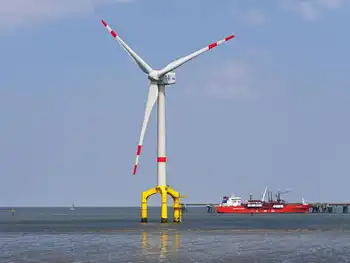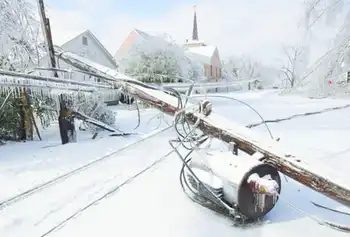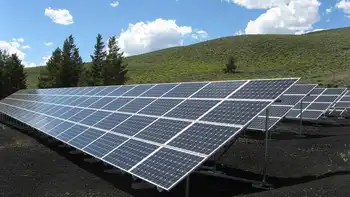Ontario to fast-track wind turbine projects
By Toronto Star
High Voltage Maintenance Training Online
Our customized live online or in‑person group training can be delivered to your staff at your location.

- Live Online
- 12 hours Instructor-led
- Group Training Available
The new rules, a blow to NIMBYism, will also ensure that developers of wind and other renewable-energy projects get construction permits within six months.
It's all part of Premier Dalton McGuinty's plan to streamline approvals for such projects, create certainty for developers and attract more investments that will create green-collar jobs in the province – more than 50,000 jobs over three years, McGuinty has touted.
Energy and Infrastructure Minister George Smitherman, speaking at the Toronto Board of Trade, said the patchwork of municipal guidelines that has evolved over the years has created a cumbersome process for energy developers. He compared it to the patchwork of municipal rules regarding public smoking before the province created an Ontario-wide standard. Similarly, the proposed Green Energy Act will create a provincial standard for wind turbine sites and a "one-window, one-permit" approach to approvals.
"I see municipalities grappling, struggling, with how to balance the desire of local wind proponents against the desire of some local residents," Smitherman said in an interview. "A patchwork quilt is not the best way forward."
The setback distance for turbines – that is, how far they must be from a home or environmentally sensitive area – will be determined through consultation with the public and the environment ministry. Possible distances will be discussed, Smitherman said.
Other items expected to be in the proposed legislation:
The province's Standard Offer Program, which sets standard pricing for electricity from small renewable energy projects, has been scrapped. It will be replaced by a more ambitious program that accommodates wind, biomass, hydroelectric and solar projects.
Homeowners will soon have access to direct grants and low-interest loans to help pay for technology and appliances that make their homes more energy efficient.
New policies will support co-operatives of farmers, homeowners and businesses that want to invest in renewable-energy projects.
The province will also stimulate development of offshore wind farms on the Ontario side of the Great Lakes with the aim of pursuing power-purchase contracts with developers. Toronto Hydro and Trillium Power are two companies planning such projects. "There are wonderful opportunities for offshore wind... there are lots and lots of exciting proposals," Smitherman said. "We're making sure we'll move those proposals along."
Beth Harrington, a spokesperson for Wind Concerns Ontario – a coalition of 29 community groups concerned about potential noise and health effects from wind developments – said the idea of a province-wide standard for turbine standards makes sense. "What we'd like to know is how will the government determine those universal minimum setbacks? What research will it be based on? Are they actually going to listen to the testimony of people living near wind turbines in Ontario?" she said.
Harrington wouldn't say what a reasonable setback distance might be, though the coalition's website suggests a minimum of two kilometres. "The ball is in the government's court," she said.
Richard King, an energy lawyer with Ogilvy Renault, which has represented wind-farm developers in Ontario, attended Smitherman's speech. He said the government is heading in the right direction by uploading responsibilities from municipalities to the province.
"The municipal stuff is frustrating, because there are a lot of procedural rights attached to it that can go on and on even for the smallest aspects of a project," he said.











